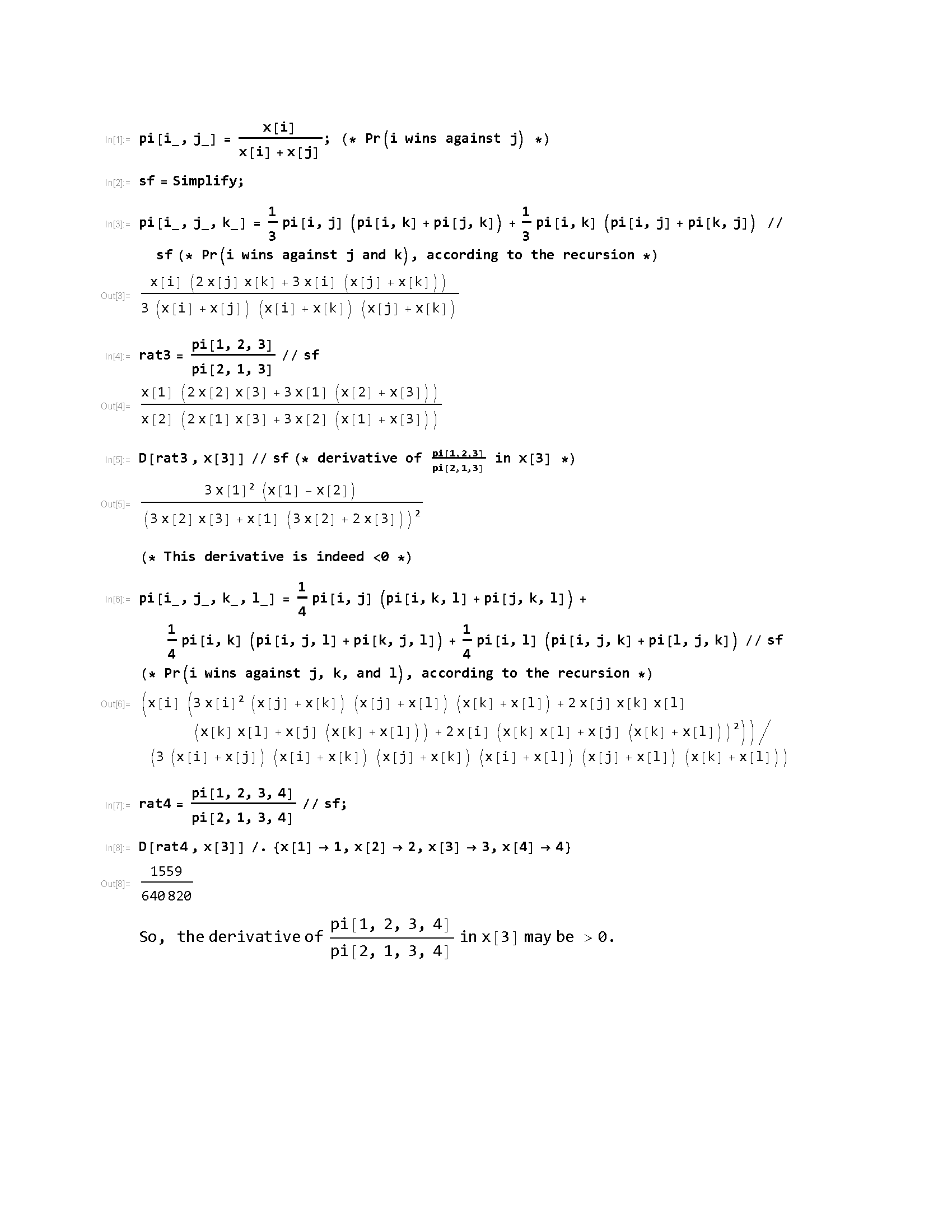Fix reals $0<x_1<\cdots<x_n$ and consider $n\ge 3$ player numbered $1,2,\ldots,n$. If player $i$ fights against $j$ then $i$ wins with probability $\frac{x_i}{x_i+x_j}$, and there are no ties.
A player $i_1$ is extracted at random. Then, a second different player $i_2$ is extracted at random and fight against each other. Hence, we extract another player $i_3\neq i_1,i_2$. The winner of the latter round fights against $i_3$.The fights continues until all players have been extracted (so $n-1$ fights in total).
This game has been introduced here, where it is only shown how to calculate the winning probabilities $\pi(i)$ recursively, that is, $$ \pi(i)=\frac{1}{n}\sum_{1\le j\le n, j\neq i}\frac{x_i}{x_i+x_j}(\pi(i\upharpoonright j)+\pi(j\upharpoonright i)), $$ where $\pi(a\upharpoonright b)$ is the winning probability of $a$ in the restricted game with all players except $b$.
Question. Is it true that, given $k\ge 3$, the ratio of winning probabilities $\frac{\pi(1)}{\pi(2)}$ is a decreasing function of $x_k$?
(The answer is affirmative for $n=3$.)

